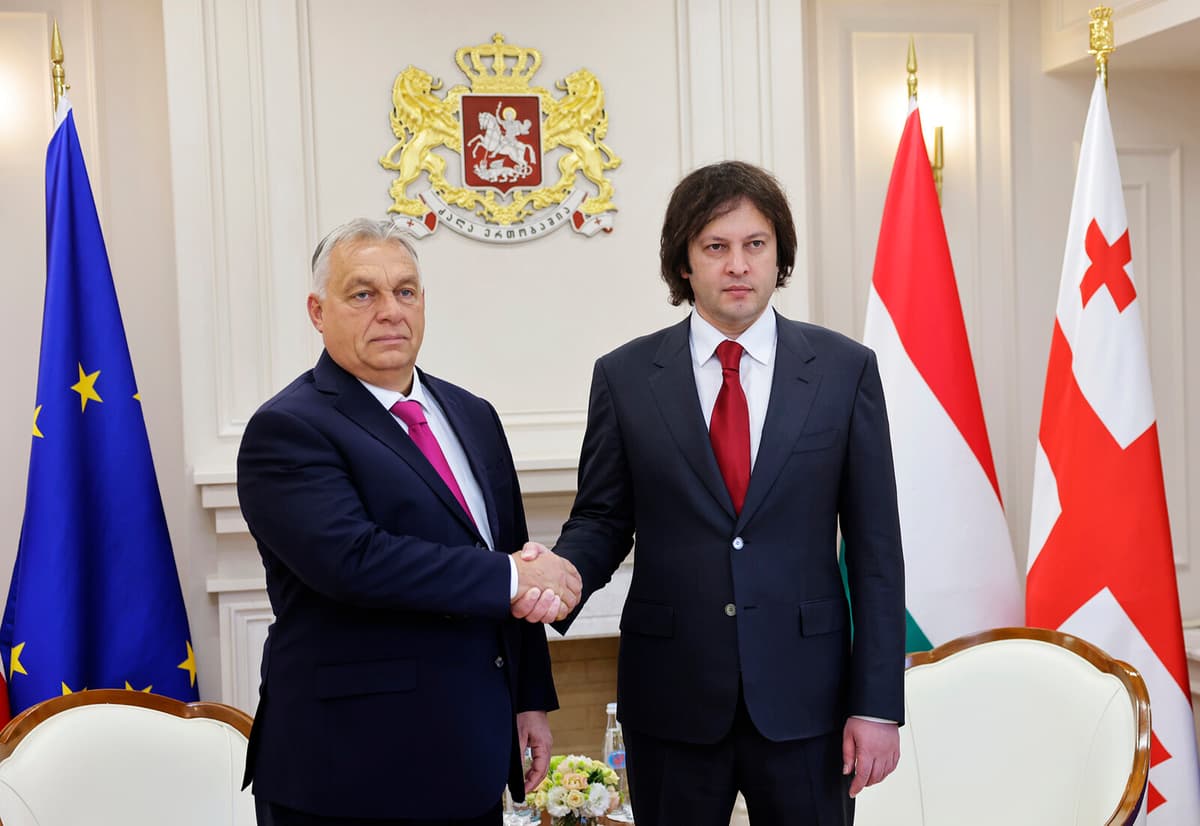Georgia's election was "free and fair", claims Orbán during a press conference in Tbilisi on Tuesday – side by side with Georgia's Prime Minister Irakli Kobachidze.
According to Orbán, the alleged election victory of the ruling party Georgian Dream means that Georgians "voted for peace". The statement is an echo of the rhetoric used by the government during the election campaign, when they accused the opposition of trying to open a new front in the Ukraine war.
Kobachidze, who leads Georgian Dream, thanks Orbán for his support for Georgia's EU integration. However, it has been put on hold due to the government's introduction of the so-called agent law in June – a law that is generally considered a copy of a Russian law used to restrict civil society and regime criticism.
Kobachidze also states that he and Orbán share "conservative, Christian values".
Orbán's Georgia trip deepens the divide between Hungary – currently holding the presidency of the EU Council – and the EU, according to analysts. The EU has emphasized that the Hungarian Prime Minister, who is Russian President Vladimir Putin's closest ally in the EU, does not represent the union during his visit to Tbilisi.
Orbán's trip has been criticized by ministers from several EU countries. In a joint statement, EU ministers from countries including France and Germany also condemn "all breaches of international norms for free and fair elections".
According to the official result after the election on October 26, the ruling party Georgian Dream won with almost 54 percent of the votes.
The opposition received a total of around 38 percent, according to the election authority.
The result was immediately questioned by the opposition and the country's EU-friendly President Salomé Zourabichvili, who accused the government of a constitutional coup staged by Russia. Georgian Dream has been accused in recent years of increasingly turning its back on the EU and instead looking towards Moscow, despite the country being granted EU candidate status at the end of 2023.
On Monday evening, tens of thousands of Georgians protested against the election result outside the parliament in the capital Tbilisi.
On Tuesday, the disputed election authority announced that a small part of the votes will be recounted. Five polling stations in each constituency have been selected for the votes cast there to be recounted, according to the announcement.






